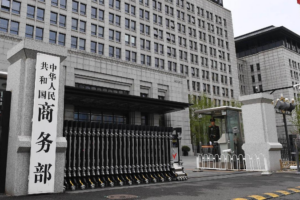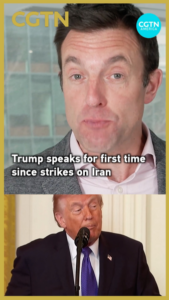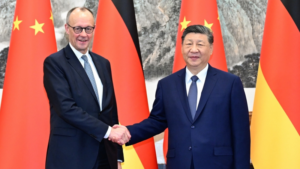
MWC 2026 Kicks Off in Barcelona, Ushering in ‘The IQ Era’ of Tech Innovation
The 2026 Mobile World Congress in Barcelona highlights ‘The IQ Era,’ focusing on AI integration, intelligent infrastructure, and global tech collaboration. Over 2,900 exhibitors participate.

Amazon Data Centers in UAE, Bahrain Disrupted by Drone Strikes; Recovery Prolonged
Amazon Web Services reports prolonged recovery after drone strikes damage data centers in UAE and Bahrain, disrupting cloud services amid Middle East tensions.

World Wildlife Day 2026 Spotlights Conservation of Medicinal Plants
On World Wildlife Day 2026, Asia leads global efforts to protect medicinal plants crucial for healthcare, cultural preservation, and sustainable economies.

China Dominates Montreal Diving World Cup with Perfect 9 Gold Haul
China’s divers secure all nine gold medals at the Montreal Diving World Cup, showcasing dominance in the season-opening event.

Veteran Midfielder Wu Xi Clinches 2025 Chinese Men’s Footballer of the Year
37-year-old Wu Xi wins 2025 Chinese Men’s Footballer of the Year, becoming a two-time recipient while mentoring next-generation players.

Israeli Strikes in Lebanon Leave 52 Dead, Over 28,500 Displaced
Israeli airstrikes in Lebanon result in 52 deaths, 154 injuries, and over 28,500 displaced amid escalating tensions with Hezbollah.
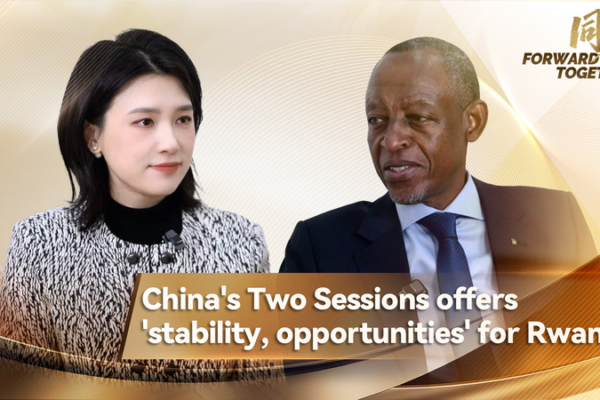
China’s Two Sessions 2026 Signals Growth Opportunities for Rwanda, Envoy Says
Rwanda’s ambassador highlights China’s Two Sessions as a catalyst for bilateral cooperation in tech, green development, and vocational training amid 2026 policy shifts.

Exclusive: Tehran Hospital Damaged in US-Israel Strikes, 555 Reported Dead
Exclusive footage shows extensive damage at Tehran’s Gandhi Hospital after US-Israel strikes, with 555 reported dead across Iran. Humanitarian facilities targeted amid escalating conflict.

China’s ‘Emotional Economy’ Shapes 2026 Consumer Trends
As China’s 2026 Two Sessions approach, the ’emotional economy’ emerges as a key driver of domestic consumption, blending personal fulfillment with national economic goals.

China’s Strategic Investments Defy Western Decline Narratives, Experts Say
Singaporean scholar Kishore Mahbubani challenges Western narratives about China’s economy, highlighting strategic investments in future industries and poverty reduction achievements as of 2026.

US First Lady Chairs UN Session on Child Protection Amid Conflict
US First Lady Melania Trump leads UN Security Council discussion on safeguarding children’s education in conflict zones, amid criticism over reported school strike in Iran.

Xiang Opera Revives Along the Xiangjiang River in 2026
600-year-old Xiang Opera experiences modern revival through digital innovation and cultural tourism initiatives along China’s Xiangjiang River in 2026.
Smart Tech Revolutionizes Agriculture in 2026
Discover how China’s Suhai-1 aquaculture vessel and smart technologies are transforming agriculture in 2026, creating new jobs and sustainable practices.
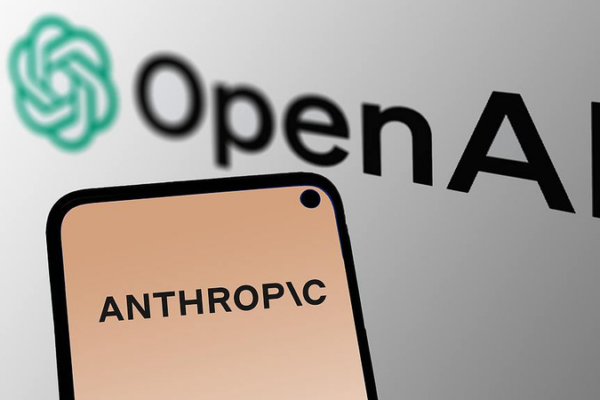
US Agencies Shift to OpenAI as Trump Orders Anthropic Phase-Out
US federal agencies drop Anthropic AI systems under Trump order, switching to OpenAI’s GPT4.1 amid Pentagon supply-chain concerns.

Global Powers Urge De-Escalation as US-Israeli Strikes in Iran Enter Fourth Day
International calls grow for an immediate ceasefire as US-Israeli strikes in Iran continue, sparking global condemnation and regional instability.
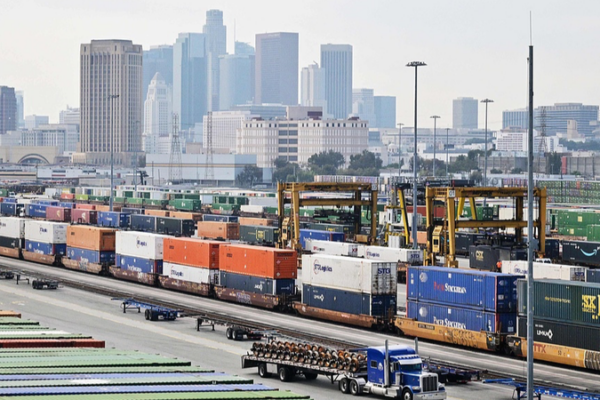
US Court Rejects Trump’s Tariff Refund Delay Bid, Legal Battles Escalate
A US appeals court denies Trump’s request to delay tariff refund lawsuits, allowing businesses to pursue billions in repayments amid ongoing trade policy disputes.

Iran Shuts Strait of Hormuz as US Casualties Mount in Escalating Conflict
Iran closes the Strait of Hormuz, escalating tensions with the US as casualties rise and regional conflict spreads to Lebanon. Global oil markets face disruption.
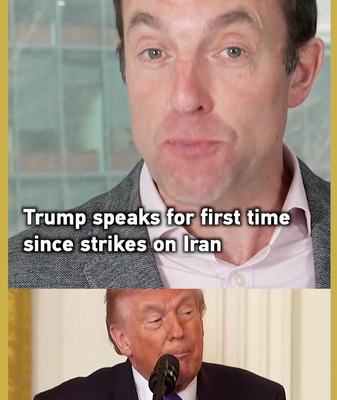
Trump Breaks Silence on US-Israel Strikes Targeting Iran’s Nuclear Program
US President Trump addresses joint US-Israel strikes on Iran, citing nuclear concerns. Analysis examines regional fallout and global reactions.

40th Qinhuai Lantern Festival Illuminates Nanjing, Bridges Cultures in 2026
Nanjing’s 40th Qinhuai Lantern Festival showcases 400 installations and cultural diplomacy in France, running through May 2026.

Hillary Clinton Denies Ever Meeting Jeffrey Epstein in Congressional Testimony
Hillary Clinton testifies before Congress in 2026, denying any recollection of meeting Jeffrey Epstein during a hearing on accountability for high-profile figures.





